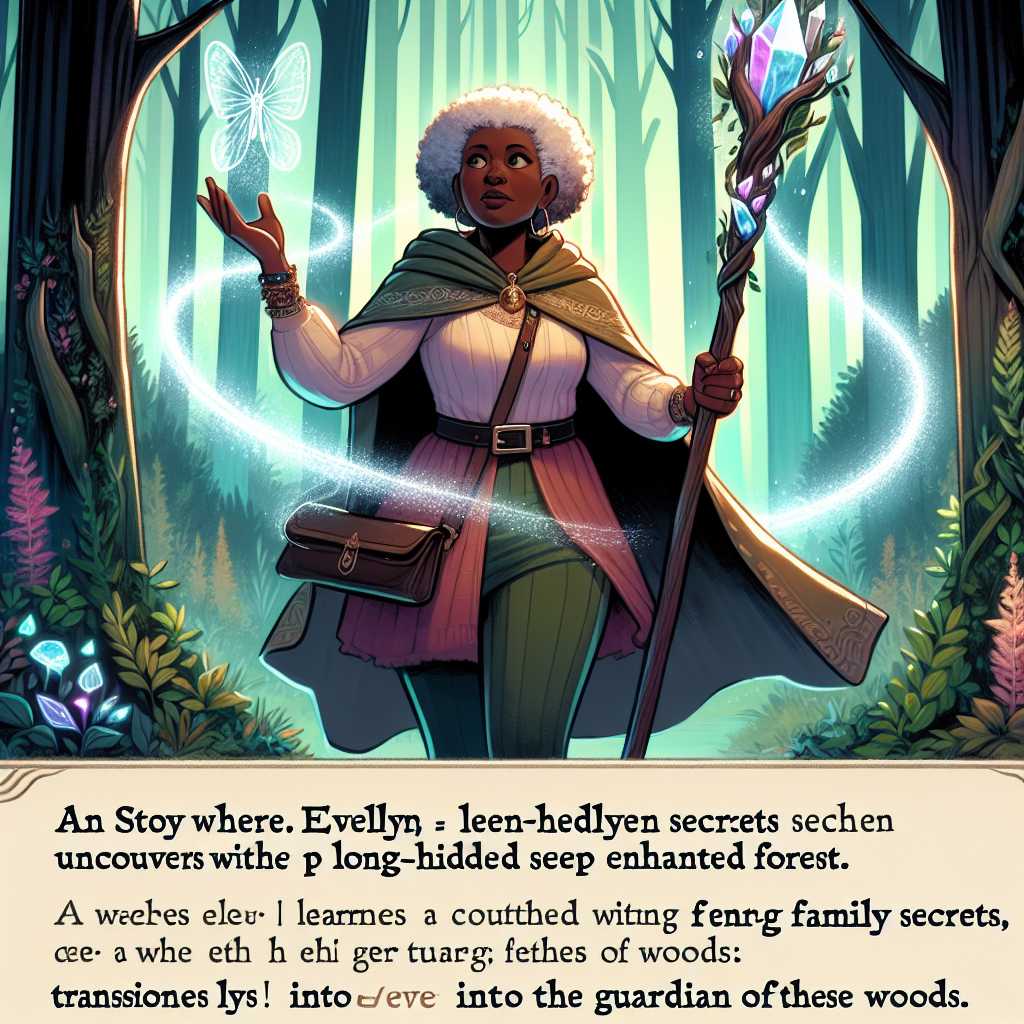
Once upon a time, in a land of undulating hills and whispering winds, there lived a young girl named Aria. She dwelt in a small, sun-kissed village where everyone knew each other's name and dreams bloomed like flowers in spring. Aria, with hair like the cascading golden rays of dawn and a spirit as indomitable as the mountain peaks, harbored a dream that soared higher than the eagles—she wanted to bring music to every corner of the world, a symphony that would touch every heart, heal every wound, and inspire every soul.
However, Aria's path was strewn with thorns. The village, albeit charming and cheerful, lay secluded from the grand orchestras and magnificent concert halls of the world. Resources were scarce, and opportunities scarcer still. Her parents, though supportive, were simple farmers, and the echoes of her tunes often dissipated into the vast, open fields.
Undeterred, Aria nurtured her passion with what little she had—a battered old flute passed down from her grandfather. Day after day, she played her flute with the birds at sunrise and with the crickets at twilight. Her melodies, ripe with hope and fervor, caressed the villagers' souls, turning even the gloomiest days into tapestries of color and joy.
"Remember, Aria," her grandfather had once said, "the music you create is a reflection of your heart. Play with sincerity, and you shall move mountains."
Emboldened by her grandfather's words, Aria decided it was time to share her music with the world. She ventured forth, her flute in hand, to a grand competition in a distant city. With each step towards the city, her heart pounded like the rhythm of an untamed river—excited, yet fraught with the anxiety of the unknown.
On the day of the competition, Aria found herself among a sea of musicians. The air was thick with the scent of polished wood and anticipation. When her turn arrived, Aria stepped onto the stage, and the crowd fell into a hushed expectancy. She brought the flute to her lips, and as she played her first note, a profound stillness embraced the audience—a stillness so pure that one could almost hear the fluttering of a butterfly's wing.
But suddenly, in the midst of her performance, disaster struck. A string of notes went awry; her flute had betrayed her. The once mellifluous stream of sound now sputtered and choked. Aria stood, mortified, as whispers of discontent rustled through the crowd. Her dream, it seemed, was crumbling before her very eyes.
With all eyes scrutinizing her, Aria did something remarkable—she paused, closed her eyes, and took a deep breath. Then, with a resilience that belied her gentle appearance, she continued to play. The notes that spilled forth were imbued not only with beauty but with the raw honesty of her struggle. By the end of her performance, the crowd, moved by her courage and her music, erupted into heartfelt applause.
Though Aria did not win the competition, she won something far more precious—the realization that perfection is not the soul of music, but rather the authenticity and emotion one shares with the world. She returned to her village not with a trophy, but with a heart full of tales and a vision clearer than the mountain streams.
Days turned to months, and months to years, and Aria's reputation as a musician of extraordinary spirit spread far and wide. Her little village became a beacon, attracting music lovers from all across the land. And so it was, through the sheer strength of her will and the melodies that sprung from her humble flute, Aria accomplished what she had set out to do—she brought music to every corner of the world, one heart at a time.
And there, beneath the wide expanse of the azure sky, the girl who once played for the birds in solitude, now played for throngs of people who carried her music within their hearts wherever they went, like a gentle, unspoken promise that as long as there are souls to listen, the music—and hope—would never die.
Aria's music resonated through the ages, an inspiration to all those who dared to dream. For in the end, her story was more than just about music; it was a testament to the enduring power of perseverance, the beauty of imperfection, and the incredible journey of a dreamer who, against all odds, chose to dance to her own rhythm.
And they say, on moonlit nights when the world grows still and the stars lean close to the Earth, if you listen with your heart, you can hear the distant echoes of Aria's flute, whispering to the dreamers, "Play with sincerity, and you shall move mountains."










